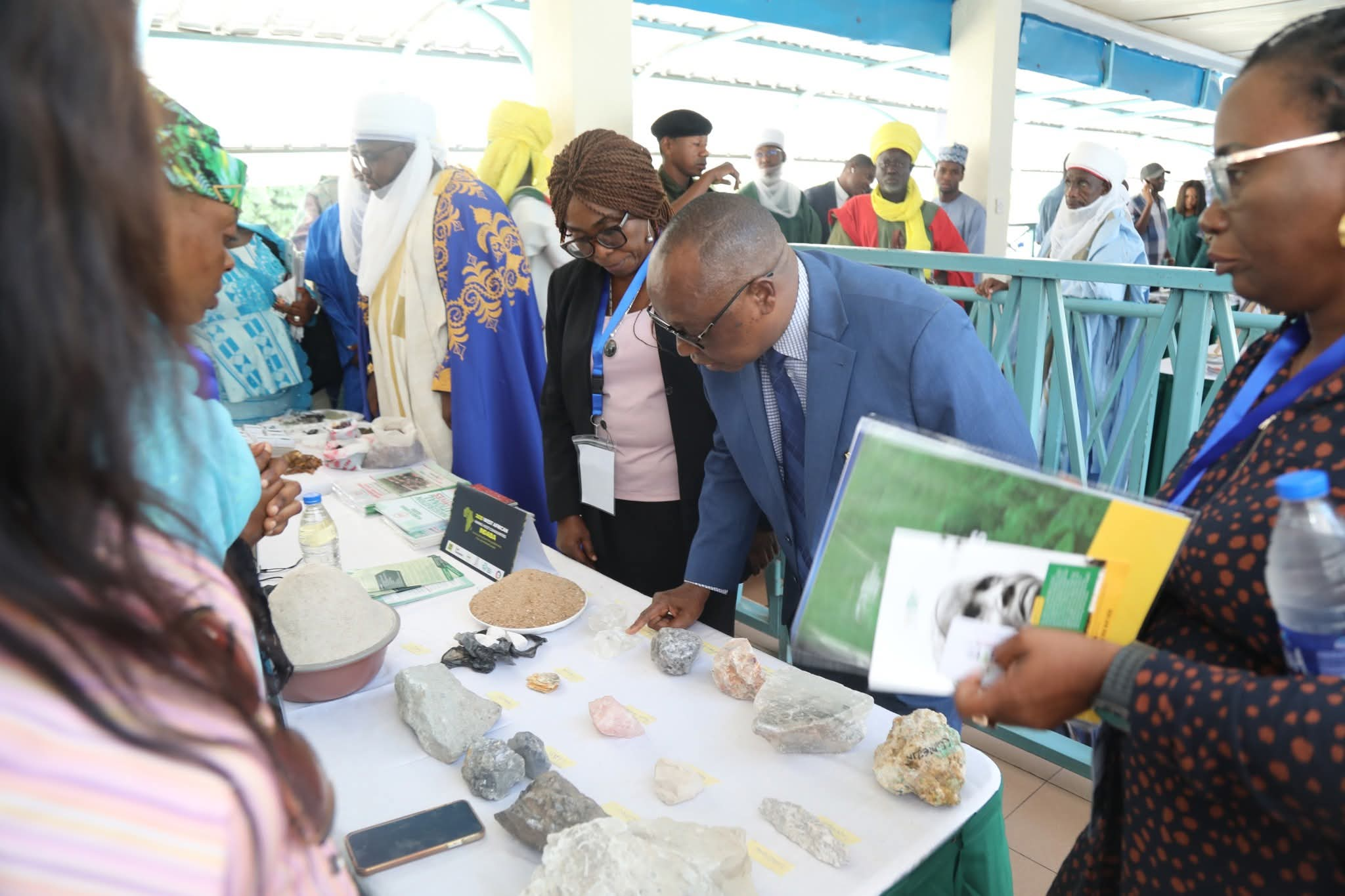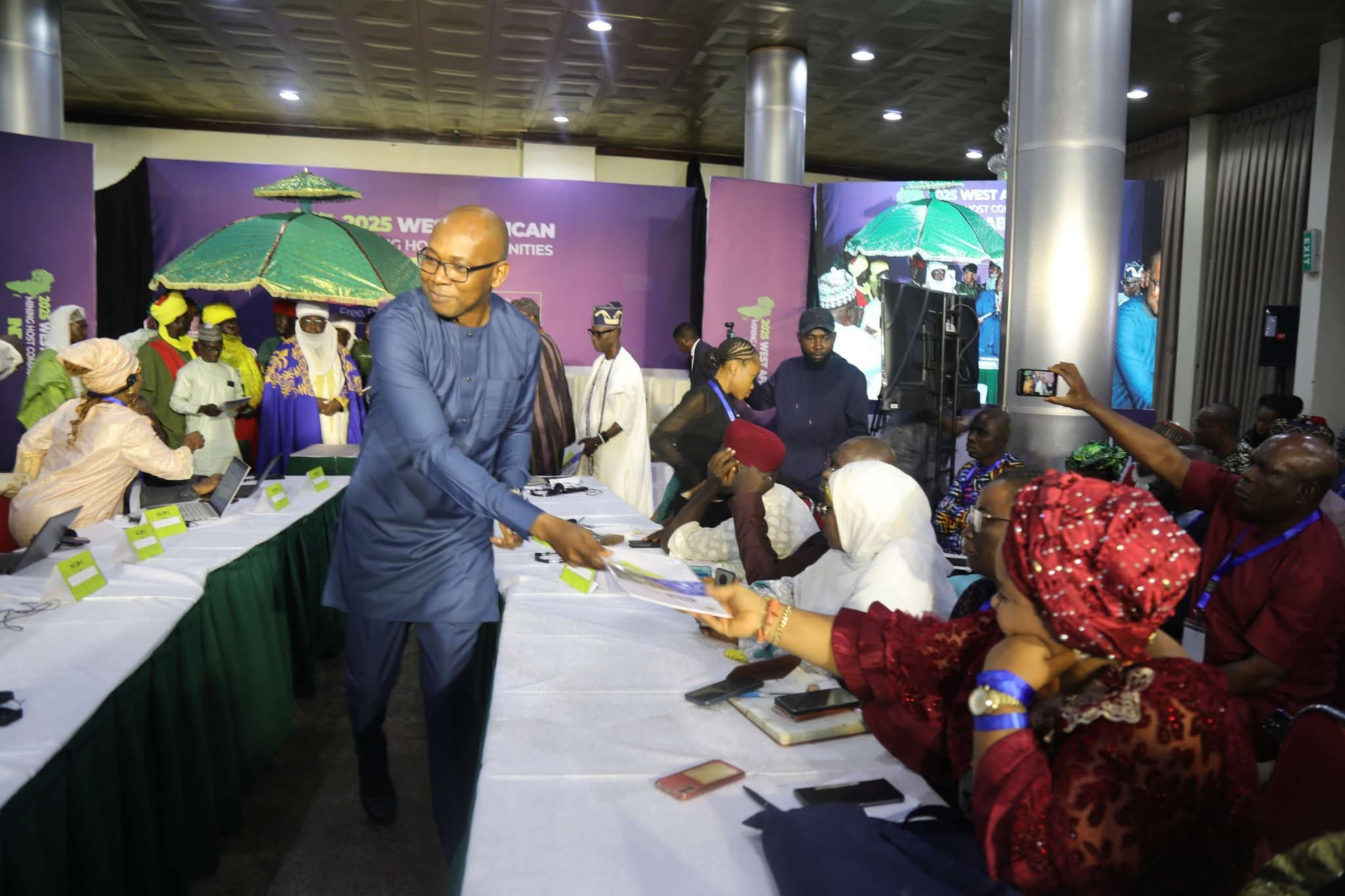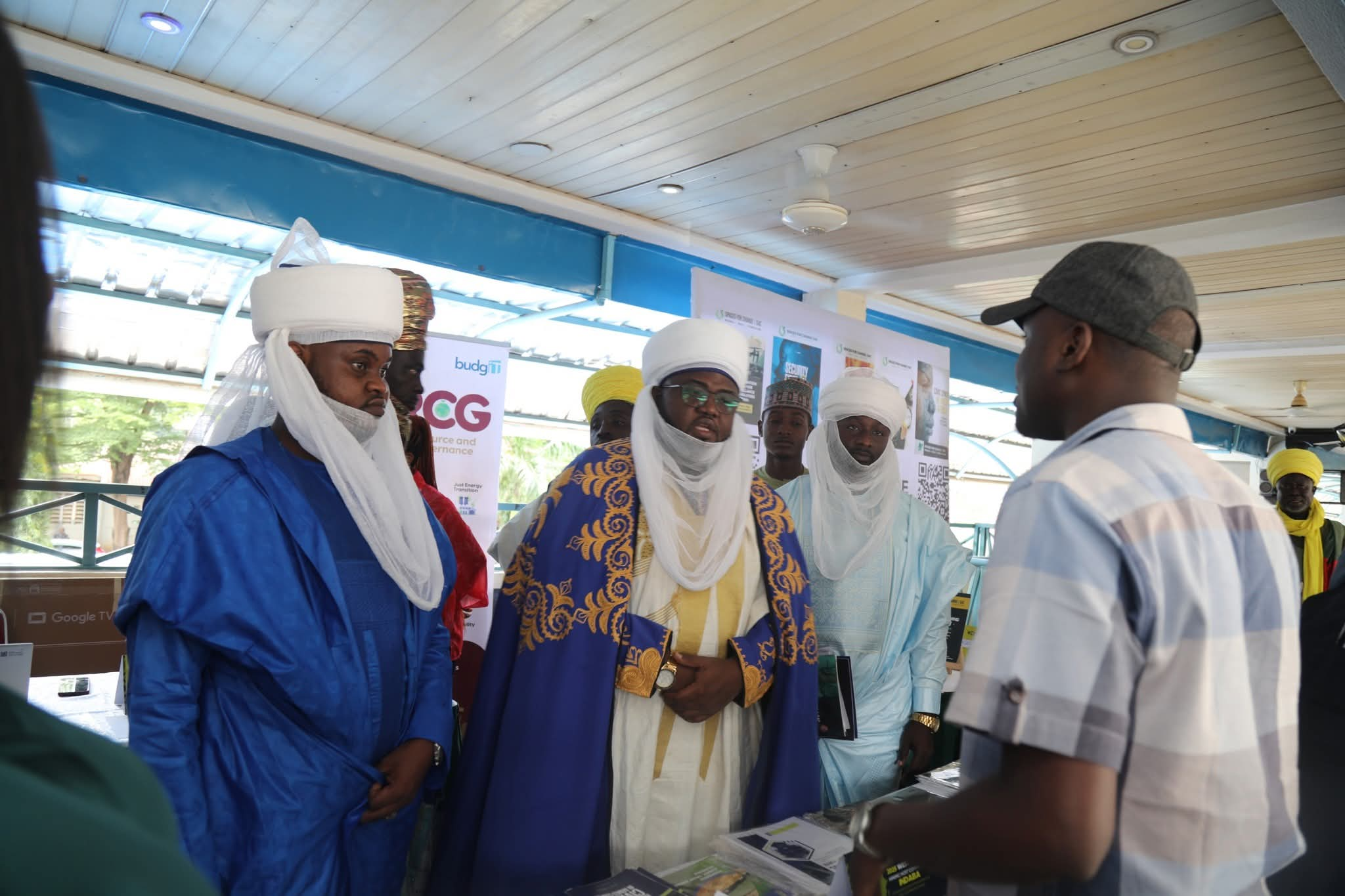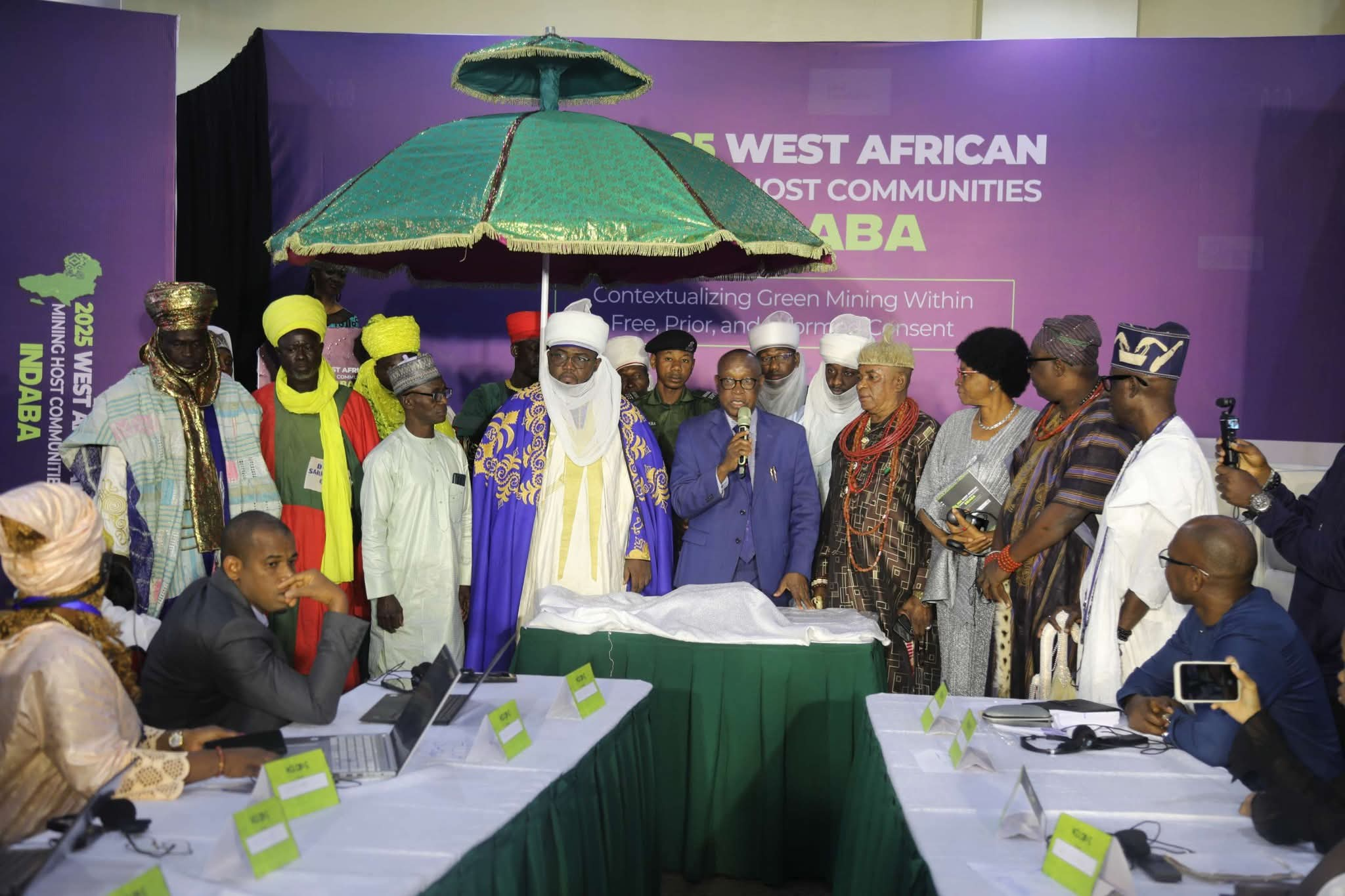Maureen Okpe
Stakeholders across West Africa’s mining sector have demanded for stronger legal protections, environmental safeguards, and economic justice for mining host communities to curb incessant corrupt practices and illegal activities.
The demand was made on Wednesday at the 5th West African Mining Host Communities Indaba. A three-day event, organized by Global Right with support from Ford Foundation and in collaboration with African Coalition for Corporate Accountability, ACCA, and Coalition for Human Rights in Development.
The event with theme, “Contextualizing Green Mining Within Free, Prior, and Informed Consent,” focused on placing communities at the heart of mineral extraction decisions amid Nigeria’s push for green energy transition.
Read Also: Group, Communities Lament Poor Regulation Of Nigeria’s Mining Sector

Dr. Orji Ogbonnaya Orji, Executive Secretary of the Nigeria Extractive Industries Transparency Initiative (NEITI), in his keynote address, emphasized the urgency for reform in the mining sector.
Orji disclosed that, NEITI’s 2023 audit report, noted Nigeria’s solid minerals sector contributed less than 1% to the GDP despite having over 44 mineral types in more than 500 locations.
“The total revenue from the sector in 2023 stood at N401.8 billion, representing just 0.83% of GDP. This is unacceptable in a country blessed with abundant mineral wealth.
“We gather at a moment when Nigeria must decide whether its vast mineral wealth will be a blessing for generations or another story of squandered opportunities. The time for lamentation is over.”
He called for immediate reforms, including the passage of a new Solid Minerals Reform Act within 12 months, creation of a National Minerals Development Council, establishment of a Real-Time Mining Cadastre Portal, and legal embedding of FPIC to empower host communities.

The Executive Director of Global Rights, Abiodun Baiyewu, in her welcome address said the global demand for lithium, cobalt, and bauxite must not mirror the extractive injustices of the past.
Baiyewu condemned environmental destruction, poisoned water sources, and forced displacements that have become synonymous with mining in Nigeria.
She said, “Zamfara’s children were the cost of gold mining wealth that never transformed their lives. From Kogi to Liberia, the names may differ, but the challenges remain the same,” she said.
Read Also:Ghana’s Gold Sector Faces Alarming Criminal Infiltration— Report
“The promise of a greener world must not come at the expense of people whose heritage is being traded under the guise of a just energy transition.”
Hon. Gaza Jonathan Gbefwi, Chairman of the House Committee on Solid Minerals, reinforced the importance of FPIC as a non-negotiable right.
Gbefwi represented by Senior Special Assistance, Nandom Rimdan called for effective legislation that guarantees land rights, mandates FPIC, ensures benefit-sharing, enforces environmental accountability, and provides accessible legal recourse for affected communities.

He reiterated that the 10th Assembly has advanced bills aimed at tightening regulatory oversight, increasing revenue transparency, and promoting local content in mining operations.
“The future of mining is not just about extraction. It is about justice, sustainability, and dignity. The time for voluntary CSR is over we need mandatory legal frameworks.”
For his part, National Co-Chair of the Federation of Nigerian Mining Communities, Habibu Abubakar Wushishi, provided a raw perspective from the grassroot.
He described the influx of illegal miners, including foreigners, particularly in northern Nigeria, as a source of environmental degradation and social disruption. “They come into the land, start digging, polluting, and leave behind broken homes and school dropouts. There’s nothing like environmental impact assessment or community consent,” he lamented.
Wushishi lauded the impact of the annual Indaba in educating host communities about their rights. “The Ndabas have made us aware that we have a voice. We are entitled to be informed before any mining begins. This has empowered communities to demand robust Community Development Agreements (CDAs) with licensed operators,” he said.
He emphasized that robust CDAs should focus not on cash handouts, but on essential social infrastructure like schools, healthcare clinics, roads, and potable water. “We are not just talking about money—we are talking about restoring dignity and delivering development in return for the wealth taken from these communities,” he added.
“About 85% of mining in Nigeria is done unsafely, with chemicals washing into rivers. Lead poisoning causes early abortions, impotency, and child deaths. We must act,” Wushishi said.
He urged collaboration between communities, traditional leaders, CSOs, NGOs, and the media to combat illegal mining and advocate for safer practices.
“Where there is mining, there is violence. We must report illegal miners and ensure that only companies licensed by the Ministry, with proper agreements and assessments, are allowed to operate,” he advised.
Highlight of the event was the exhibition of minerals and the new report launch; Violent Earth – Mining, Conflict, and Insecurity in Nigeria Led by Abiodun Baiyewu and Dr. Orji Ogbonnaya Orji, which reveals how weak enforcement of mining regulations, unregulated artisanal mining, and governance gaps are fueling violence, environmental destruction, and insecurity across Nigeria.

